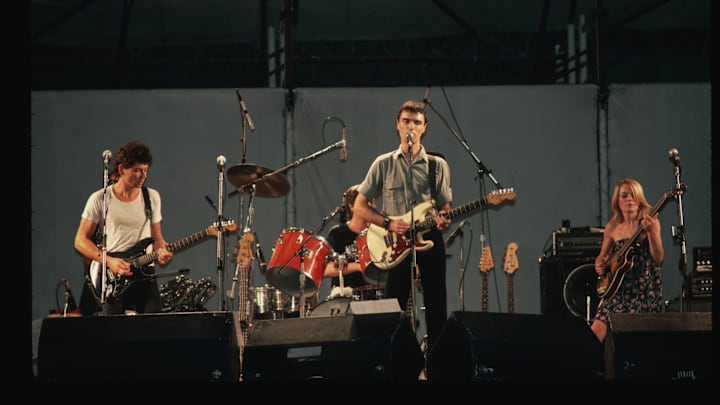The 1970s were full of great music, and honestly too much for most people to remember. This can be a good thing because one can be surprised by stumbling upon a song or album they might have forgotten about. Like a Christmas gift one already opened but then forgot they ever received.
All of the tracks below are by musical artists who have quite a few better-known songs. Each of the following tunes had a level of popularity but was certainly overshadowed by the other well-known tunes. They are still worthy of additional listening.
You will know all the artists. You might even know the songs. But maybe a few you will be how to get to know again.
Four songs from the 1970s that are terrifically underrated
David Bowie - "Black Country Rock" (1970)
Before Bowie came into full Bowie-ness, he recorded a few albums that were much more hit-and-miss than, say, Hunky Dory. The third of these early albums was The Man Who Sold the World which featured a few gems such as the title track and "The Width of a Circle." Perhaps the best of these was "Black Country Rock," however.
The song almost occurred by accident. The lyrics were not written until the very end of the month-long recording session for the album and Bowie only used the working title of the track instead of coming up with something on the spot. The simplicity helps turn the song from a standard blues-rock track into something more glammy.
In fact, Bowie sounds a lot like T. Rex's Marc Bolan, especially on the last verse. This was intentional and perfect.
The Police - "Walking on the Moon" (1979)
The story goes that Sting was quite drunk and the words "Walking around the room" came into his head. The next morning he woke up and decided to change the words into something more "stupid," according to the performer. The track was also much more of a straightforward rock song but then the band wisely changed it up to a slower-tempo reggae tune.
What makes the song really work is the slight change of cadence in the chorus and the chord progression. The verses are so rigid that the chorus breathes life into a track that needs it desperately. Ironically, the words are simply about how it feels to fall in love and not until the chorus will one fall in love with the tune.
AC/DC - "Whole Lotta Rosie" (1977)
Sure, to AC/DC fans, this song is not underrated. This is one of the band's most beloved tracks to those in the know. But can't one be beloved and still generally underrated? Yes. And that is the case with this adrenaline rush of a song.
Part punk, part blues, part metal, the song kicks from the beginning and doesn't quit. The key is to listen to the album version and not the original single release as much of the guitar solo was cut out, sadly. The song is five minutes and 20 seconds long and even that seems far too short. You might find yourself hitting repeat after the track ends.
The backstory of the words is that late vocalist Bon Scott met a sex worker after one of the band's gigs and the sex worker told Scott that she had been with 28 "famous" men that month and implied Scott could be number 29. The lady was based on a real person named Rose-Maree Garcia who sadly passed away when she was 22 years old.
Talking Heads - "Life During Wartime" (1979)
The magic of the Talking Heads was that they could incorporate lots of different kinds of music and that the original inspirations would remain intact but that the music being produced still only sounded like something the Talking Heads would create. In this case, the band took 1970s funk and turned that into something that seemed akin to David Bowie's "D.J."
The theme of the song is rather dour, though. David Byrne wrote the words about living in Alphabet City in New York which, at the time, was extremely disaffected and suffered from violence. In other words, what it might have been like to inhabit a war zone was really just real-life living in parts of New York City in the 1970s.
